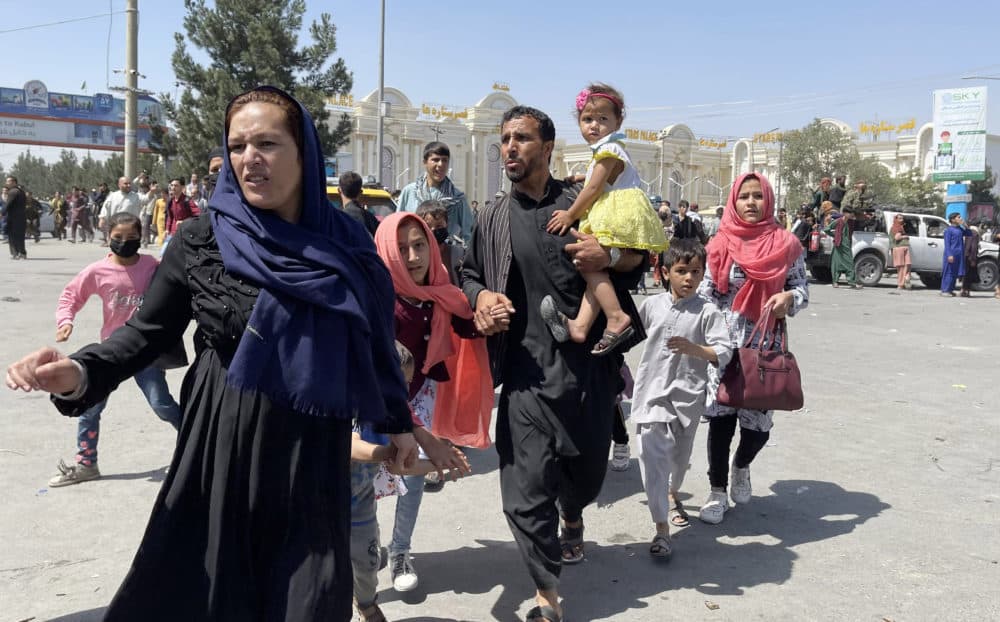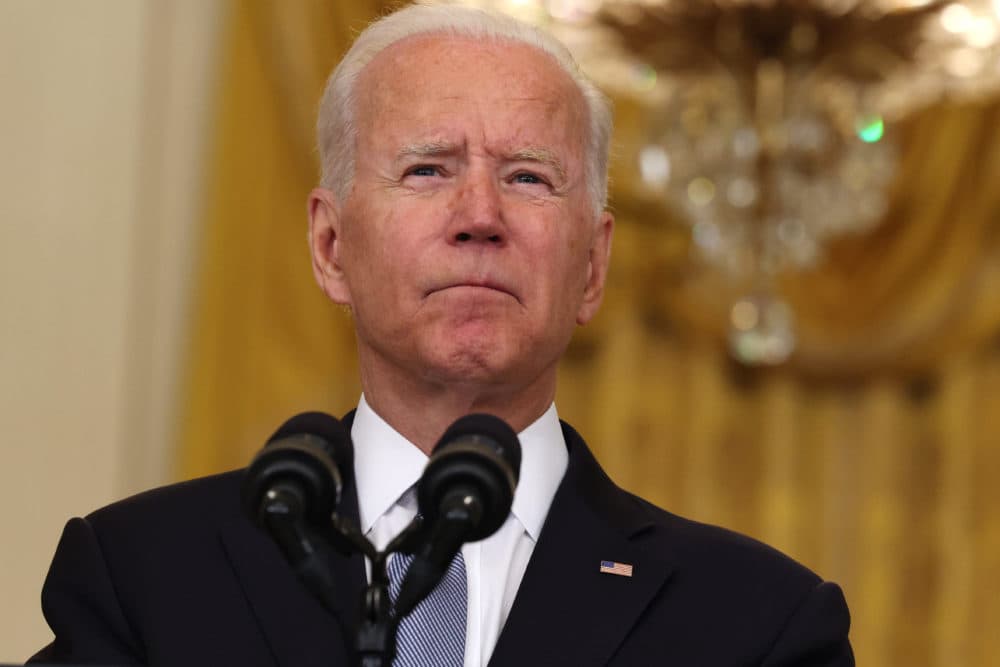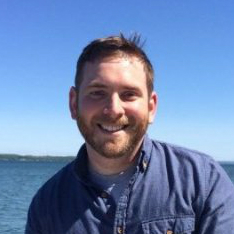Advertisement
Commentary
A Veteran Considers America's Moral Failure In Afghanistan — And His Own Culpability

One of my most indelible memories of Afghanistan is flying over Kabul in a Chinook helicopter at night. The cityscape stretched below us in a chaotic array of colored lights, like some cosmic event reflected on the surface of a black ocean.
It was 2012 and I was a junior public affairs officer headed to cover a joint NATO-Afghan conference at Camp Julien on the coalition’s counter-improvised explosive (IED) device strategy.
I thought about the otherworldly beauty of that view this week as scenes of a very different nature from the capital filled my news feed — frenzied, desperate civilians clamoring hopelessly to board departing military planes, another generation of Afghans left to the mercy of history’s forces and the whims of great powers.
The dizzying speed with which the Afghan government fell took many experts off-guard. Had they been present at that conference nine years ago, perhaps they would have been less surprised. Our meeting was a microcosm of every dysfunction of the Afghan state and of our military strategy: Afghan Ministry of Interior officials clashed with Ministry of Defense officials over trivial matters of protocol, senior American and European officers spent hours debating the merits of the literacy requirement for Afghan explosive ordinance disposal (EOD) technicians, and Afghan generals demanded expensive equipment of dubious tactical value for a counterinsurgency. During a question-and-answer portion, an Afghan lieutenant stood and asked his superiors why none of the families of the men he had lost had received the benefit pay they were entitled to. None of the senior Afghan officers could give an answer. “Do you know who does take care of the families of their fallen?” said the U.S. Army Captain sitting next to me. “The Taliban.”
The 2001 invasion and ensuing occupation of Afghanistan propped up a government far more open and far less brutal than its Taliban predecessor. Its relative liberalism was accompanied by a spectacular level of corruption and incompetence in both the security forces and civil services. Bribery was endemic; theft of military equipment commonplace; morale among the regular military and police forces, virtually nonexistent.
President Joe Biden spoke of those Afghans not willing to fight, but what of those who risked everything to help us?
Perhaps the intelligence professionals who predicted Afghan forces would hold out longer did not consider that soldiers are unlikely to be willing to die for a government that fails to properly pay, feed and equip them. Absent the Afghan commandos, the vast majority of the security services were completely unprepared to fight a war on their own.
Of course, the partisan recriminations surrounding our withdrawal commenced instantly. Thus far, however, the Biden Administration has held firm: “American troops cannot—and should not—be fighting and dying in a war that Afghan forces are by and large not willing to fight and die in themselves.”

I find that hard to argue with. In fact, I agree with it wholeheartedly. If one-fifth of a century, trillions of dollars, and thousands of lives of American servicemembers were an insufficient commitment to purchase legitimacy for the Afghan government, the better question is why we did not leave earlier.
Much will be made by historians and politicians of the strategic failure of Afghanistan. What I hope we do not lose sight of is the abject moral failure of the adventure. There is blame to go around. As a society, we claim to venerate the military but for 20 years every politician and every disinterested civilian barely questioned a status quo that demanded our military families bear the burden of multiple, crushing deployments for a cause that long ago became incoherent.
Here in the endgame, we continue to fail the moral test in dazzling fashion. President Joe Biden spoke of those Afghans not willing to fight, but what of those who risked everything to help us? Thanks to the administration’s foot-dragging and equivocating, we stand to abandon thousands of brave Afghans who served as interpreters for coalition troops. Their fate will be horrific. It is a betrayal of biblical proportions, a permanent stain on the honor of our country.
Advertisement
I know whatever penance I do for my role in selling the war will be insufficient.
For my part, I try to not lose sight of my own culpability — as a willing participant in a support role, I bare more than most. The very nature of my job was to put the brightest sheen on the debacle. I know whatever penance I do for my role in selling the war will be insufficient.
But now a new terror is keeping me up at night. I think of the imagery I captured, shots of training sessions or patrols attached to lousy press releases that live somewhere in the recesses of the Defense Visual Information Distribution Service website. How many of the Afghan faces I captured in those pictures are now fearing for their lives? Will a photo I took betray them to the Taliban as a collaborator?
To my Afghan colleagues, I can offer you only my personal shame. I, like my country, betrayed you in the end.
